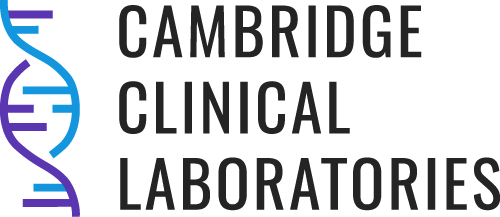A simple, accurate, non-invasive urine test transforming bladder cancer detection and surveillance
bladder cancer
Bladder cancer is the 5th most common cancer in the western world, with 56 people diagnosed every day. It is the only top 10 cancer where prognosis rates are getting worse. It is associated with several environmental risk factors, including smoking (past or present), certain types of medication, arsenic in drinking water and workplace exposures – for example, truck drivers, hairdressers and painters are at increased risk. 70-80% of cases are non-muscle invasive (NMIBC), meaning it is localized in the bladder wall and has not spread. If it is caught early at this stage, it is treatable and may not require chemotherapy.
However, even when bladder cancer is detected at an early stage and treated appropriately, it often recurs. It can recur anywhere along the urinary tract, kidneys, ureters, prostate or bladder. Therefore, close follow-up is required after treatment, which is done with regular cystoscopies. Cystoscopies are invasive, expensive, pose risk of infection, can be painful, and have a risk of temporary incontinence and bleeding. 90% of cystoscopies are also negative and they can miss up to 30% of bladder cancer recurrences. Clearly, there is a need for a non-invasive, robust and simple tool to detect and monitor non-muscle-invasive bladder cancer.
Cystoscopy: a doctor inserts a cystoscope through the urethra into the bladder to look for signs of bladder cancer. Must be done as regularly as every 3 months in high-risk patients after treatment.
bladder epicheck
Developed by Nucleix, Bladder EpiCheck® provides patients and clinicians with a simple urine test to detect early and recurring bladder tumours. The test analyses subtle disease-specific changes in DNA methylation markers, allowing for the detection of high-risk (non Ta-LG) cancers.
You receive a result with a clear positive or negative for presence of bladder cancer. The test has a very high Negative Predictive Value (NPV) of 99.3%, meaning that a negative result correctly rules out bladder cancer 99.3% of the time and does not rely on human interpretation.
For surveillance: Bladder EpiCheck® is recommended to be used in alternation with cystoscopies for surveillance, to reduce the number of cystoscopies required.
For early detection: Bladder EpiCheck® is recommended for early detection of bladder cancer and upper tract urothelial carcinoma (UTUC), in patients presenting with hematuria and/or other urinary tract symptoms and/or findings with a suspicion of malignancy. Those with a positive test result would then be recommended for a cystoscopy.
who is using bladder epicheck?
The Radboud University Medical Centre in the Netherlands was the first hospital to make Bladder EpiCheck® the standard-of-care for patients with bladder cancer. Professor Witjes reduces the number of cystoscopies required for his patients in surveillance by alternating with Bladder EpiCheck®. The test can be done at home or in an outpatient setting, reducing the time and cost burden on both the hospital and patient. Hear from Professor Witjes and one of his patients below:
You can listen to more in depth Webinars and academic speeches from the European Association of Urology meetings here: https://nucleix.com/video/
The test is also available in Spain and other European countries, and in the United States.
bladder epicheck in the nhs
For the NHS to adopt any new test, it must be approved by NICE guidelines based on data from large-scale NHS clinical trials. Currently, Bladder EpiCheck® has been reviewed by NICE and an NHS trial is underway. As part of the review, expert advisors agreed that “the technology is not yet widely used in the NHS, but aside from cost, they were not aware of any major barriers to adoption”.
The first NHS trial commenced in Summer 2023 as a collaboration between Cambridge Clinical Laboratories, Nucleix, and Dr Mariappan at the Western General Hospital in Edinburgh. In this trial, patients who visit the clinic for regular cystoscopies for surveillance of bladder cancer are also doing a Bladder EpiCheck® test, and over the course of the trial EpiCheck® will replace up to half of all surveillance cystoscopies. The trial will enable cost-calculations to support the implementation of EpiCheck® into the NHS.
how to access Epicheck
Via a private GP/consultant
You can access Epicheck® through a private GP or consultant, by booking in for a consultation where the consultant will go through all your clinical data, family history, and discuss any concerns you have. They will take your urine sample and usually book a follow-up consultation to discuss the results. They will be able to guide any further monitoring or investigation, if required. You can request any private consultant or GP to contact us to organise an EpiCheck® test for you.
We are partnered with Dr Ahmed Ali who can organise EpiCheck for NHS, private and new patients. Please contact him here - https://urologypartners.co.uk/contact-us.php
Via an online provider
You can book in for an EpiCheck test at a clinic local to you, where you will provide your urine sample. A short appointment may be required to ensure all your clinical data is collected. The clinic provider will then deliver your results via email, phone call or in-person appointment. You can book in to discuss this result with a GP or consultant if required/preferred.
Remedi Health, Winchester - https://remedihealth.co/ (by request)
E Shop Health - https://eshophealth.co.uk/lung-cancer-screening-test.html (by request)
Via a Private clinic:
Innermost Healthcare, Cardiff, Wales -https://innermosthealthcare.com/
Mans Matters Clinic, Knightsbridge - https://www.mansmatters.co.uk/
Asif Naseem GP - https://drnaseem.com/
At home:
We are partnered with Innermost Healthcare who can organise home-delivery of the urine test kit and courier collection for the day that you do the sample. Please contact https://innermosthealthcare.com/ to book this service.






